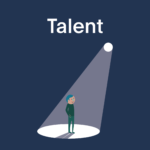Performance Management in the Modern Workplace: Key Trends and Approaches
Performance management is a critical function in organizations, aimed at maximizing employee potential and driving organizational success. However, traditional performance management approaches are evolving to align with the needs of the modern workplace. In this blog post, we will explore key trends and approaches in performance management that are shaping the way organizations assess, develop, and motivate their employees in today’s dynamic work environment.
- Continuous Feedback and Coaching: A significant trend in performance management is the shift from annual performance reviews to ongoing feedback and coaching. Modern organizations are recognizing the value of real-time feedback to support employee development and performance improvement. Regular check-ins, informal conversations, and constructive feedback throughout the year enable managers and employees to address issues promptly, celebrate achievements, and provide timely guidance. This approach promotes continuous learning and helps employees stay engaged and motivated.
- Goal Alignment and OKRs: Effective performance management includes aligning individual goals with the organization’s objectives. The adoption of Objectives and Key Results (OKRs) has gained popularity in recent years. OKRs provide a framework for setting ambitious goals and measurable key results, ensuring clarity and focus on strategic priorities. By cascading OKRs throughout the organization, employees can understand how their contributions directly impact the organization’s success, fostering alignment, accountability, and goal-driven performance.
- Shift from Ratings to Developmental Focus: Many organizations are moving away from rigid rating systems in performance management. Traditional performance ratings tend to create a competitive environment and can hinder employee growth. Instead, the focus is shifting towards fostering a developmental culture. Managers and employees engage in meaningful conversations that emphasize strengths, growth opportunities, and individual development plans. This approach encourages a growth mindset, supports skill development, and nurtures a learning-oriented culture.
- Peer Feedback and 360-Degree Reviews: Recognizing the importance of multiple perspectives, organizations are incorporating peer feedback and 360-degree reviews into their performance management processes. Feedback from peers, direct reports, and other stakeholders provides a comprehensive view of an employee’s performance, behaviors, and impact on others. This holistic feedback enables employees to gain valuable insights, identify blind spots, and promote self-awareness. Integrating feedback from various sources enhances fairness, reduces biases, and supports a more accurate assessment of performance.
- Technology-Enabled Performance Management: Advancements in technology have revolutionized performance management processes. Many organizations are leveraging digital tools and platforms to streamline performance evaluations, feedback, and goal tracking. Performance management software allows for easy documentation, tracking, and analysis of performance data. It also enables real-time collaboration, facilitates continuous feedback, and enhances transparency in performance management processes. Technology-driven solutions help HR professionals and managers efficiently manage performance and make data-informed decisions.
Performance management in the modern workplace is evolving to meet the needs of a dynamic and agile workforce. The key trends discussed, such as continuous feedback and coaching, goal alignment with OKRs, a developmental focus, peer feedback and 360-degree reviews, and technology-enabled performance management, are reshaping traditional approaches. By embracing these trends, organizations can create a culture of continuous learning, improve employee engagement and performance, and drive organizational success. Remember, performance management is an ongoing process that requires adaptability, open communication, and a focus on employee development in the ever-changing work landscape.
Top of Form




































